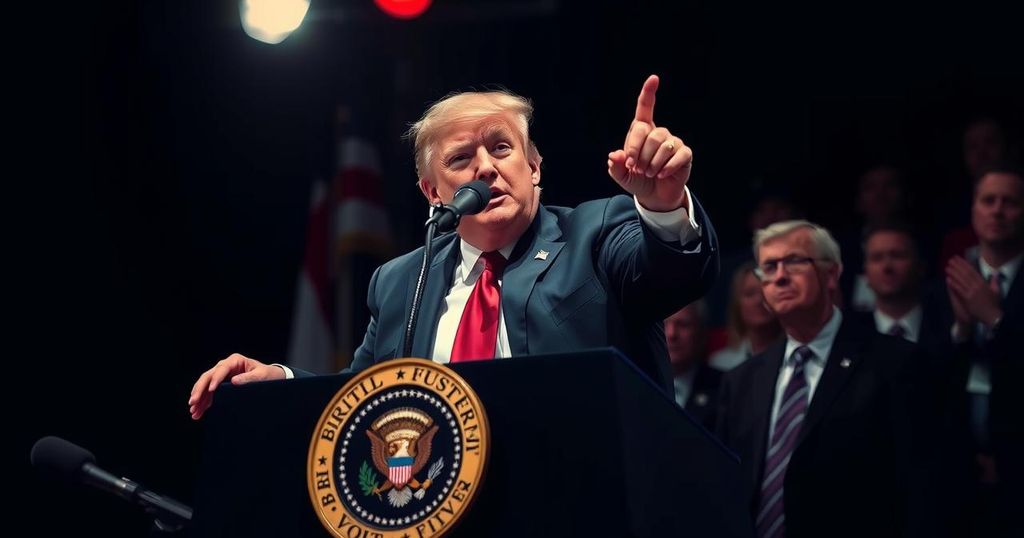Donald Trump Elected as 47th President of the United States Amidst Geopolitical Concerns

Donald Trump has been elected the 47th President of the United States with 277 Electoral College votes, defeating Vice President Kamala Harris. His victory reflects deep-seated frustrations among Americans and raises concerns about his handling of international affairs, potential policy shifts, and radical domestic agendas. Trump declares a powerful mandate, promising transformative changes amidst a complex political landscape.
Donald Trump has once again claimed the presidency, winning as the 47th President of the United States with at least 277 Electoral College votes, as reported by The Associated Press. His victory was confirmed early Wednesday, receiving international admiration but also raising concerns about the ramifications amid ongoing geopolitical turmoil. Trump decisively outperformed Vice President Kamala Harris in key battleground states, including Wisconsin, Georgia, North Carolina, and Pennsylvania, yielding a total of 277 votes against her 224. Despite predictions of a closely contested election, Trump’s win reflects public frustration arising from years of socio-political upheaval, including the aftermath of 9/11, the 2008 financial crisis, and broader dissatisfaction with the Biden administration’s economic and foreign policies. His campaign allegedly capitalized on anger toward immigration, minorities, and the perception of inadequate governmental response to domestic and international issues. Following his electoral triumph, Trump declared he had achieved “an unprecedented and powerful mandate.” However, the correction of Trump’s past controversies looms large. Observers note that this victory is indicative of deep-rooted societal frustrations that Trump has efficiently harnessed to galvanize support, leading to a polarized political landscape. Experts suggest that the intricate international challenges he faces will test his simplistic approaches to policy-making. Under his leadership, expectations are that Trump will continue to pursue aggressive stances on global issues, including a swift resolution to the war in Ukraine and the ongoing tensions in the Middle East. His robust support for foreign leaders, including Israeli Prime Minister Benjamin Netanyahu, indicates a recommitment to longstanding alliances but also raises questions about the implications for global security.
The political landscape in the United States has been significantly affected by decades of turmoil, including the events of 9/11, the 2008 financial crisis, and continued partisan polarization. Trump’s previous presidency witnessed numerous controversies, including allegations of election fraud and his subsequent indictment. His ability to resonate with the electorate’s frustrations has been a driving force behind his political resurgence. His stance on foreign policies and domestic issues remains a focal point of concern for many, especially in light of current geopolitical tensions.
The election of Donald Trump as the 47th President of the United States underscores the persistent divide within the American electorate and the complex interplay of various socio-political factors. His approach to governance promises to be radical and controversial, presaging a potentially tumultuous era for both domestic and international policy. While he seeks to leverage public sentiment around economic concerns and national security, the implications of his return to the White House are likely to unfold in unpredictable and significant ways.
Original Source: www.aljazeera.com








